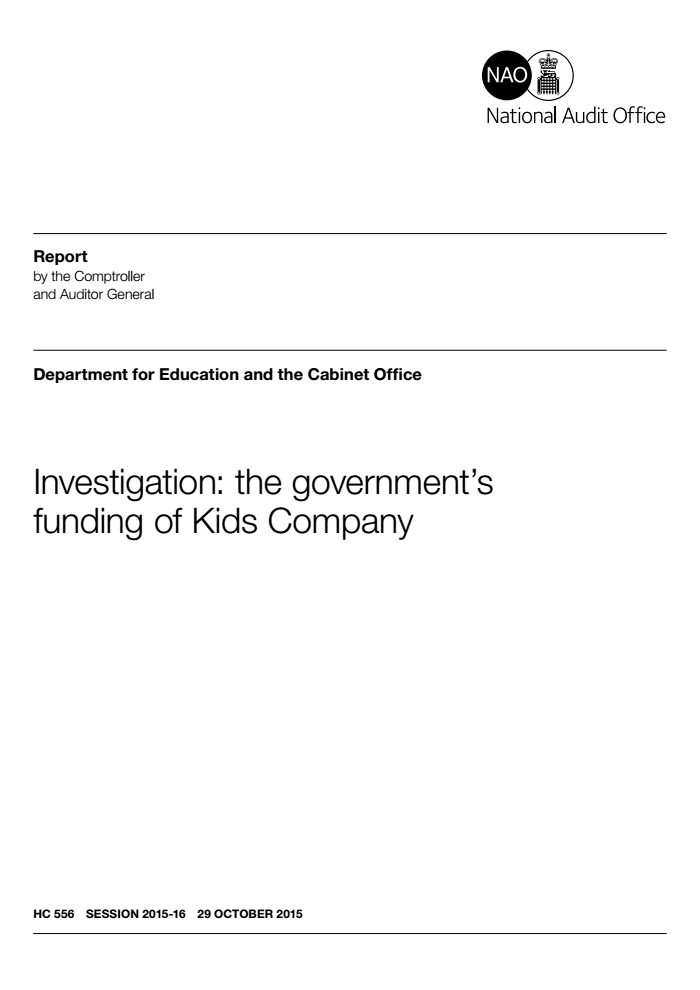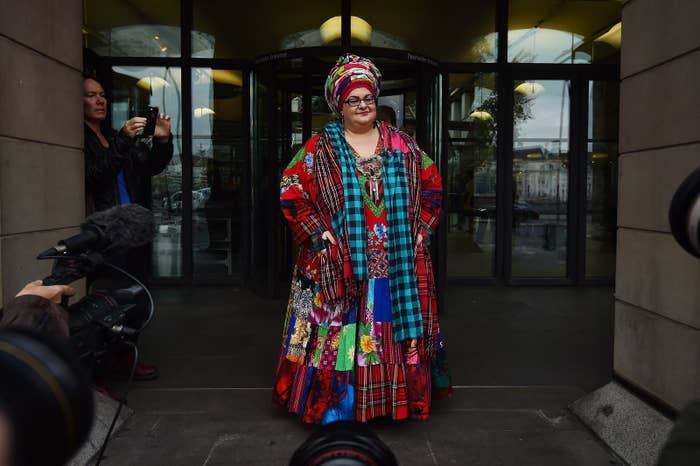
An influential House of Commons committee issued an excoriating report on Friday on the government's relationship with failed south London charity Kids Company, stating: "This must never happen again."
The public accounts committee (PAC) described the government's spending on Kids Company – £40 million over the past 13 years – as “staggering” and a decision to fund the charity in 2015 as "gullible". The committee “still has no idea what [the government] was getting for taxpayers’ money”, it said, adding: “All the warning signs of a failed and expensive experiment had long been there.”
Perhaps most damning of all, the committee's MPs concluded that by treating the charity as a special case, ministers missed opportunities to help other children.
Meg Hillier, the committee's chair, issued a strongly worded statement saying: "The case of Kids Company will anger many people. The charity was passed around Whitehall like a hot potato, with no one willing to call time on spending millions of tax pounds for uncertain outcomes.
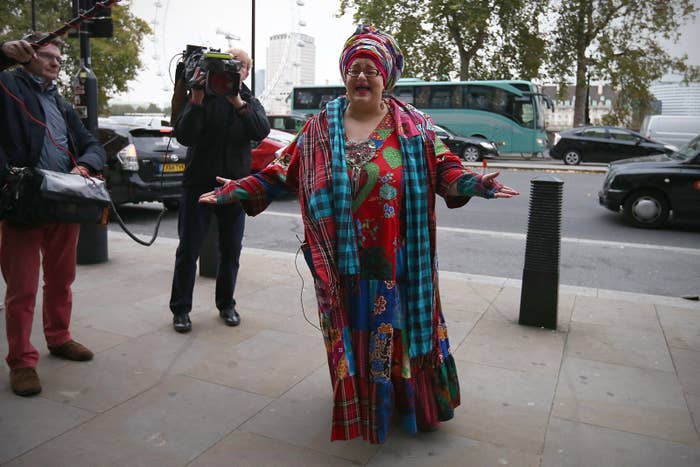
“The lack of scrutiny over its funding was staggering. Fairness and value for money – fundamental values when considering public spending – appear to have been forgotten in repeated and ultimately doomed attempts to keep Kids Company afloat."
The report draws attention to the decision by Cabinet Office ministers – revealed by BuzzFeed News and BBC Newsnight – to overrule their civil servants and award the charity a £3 million grant in late July, a move that only prolonged the life of the charity for five working days. Richard Heaton, the permanent secretary at the Cabinet Office, described the decision in oral evidence to the committee as "a punt".
As BuzzFeed News and Newsnight also revealed, this decision was taken in spite of a "horrifying" report by auditors issued as a result of allegations of misspending made to the Charity Commission by former employees.
The MPs' findings will increase pressure on Cabinet Office minister Oliver Letwin, who is set to give evidence to a separate, more wide-ranging inquiry run by the Commons public administration committee (PACAC) later this month.
Since the inquiries began, further revelations have come to light about the extent of the charity's mismanagement. Some were contained in the aforementioned auditors' report seen by Newsnight and BuzzFeed News, while yesterday further allegations by a former employee were published on the PACAC website.
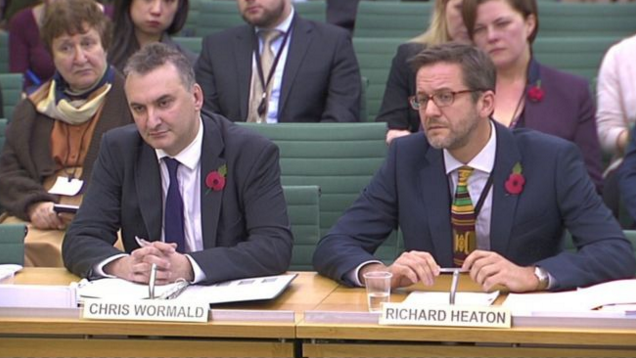
The PAC report was rather more limited in scope than the one the PACAC will produce, focusing purely on funding decisions rather than the wider relationship between the charity and Whitehall. It only took oral evidence from two senior civil servants at the Cabinet Office and Department for Education. It divided the blame equally between ministers and civil servants.
Though it did not single anyone out by name, it said: "Kids Company was a favourite of successive ministers but Accounting Officers have to make decisions, sometimes under pressure, to safeguard taxpayers’ money: in funding Kids Company for so long they have not served taxpayers or children across the country well."
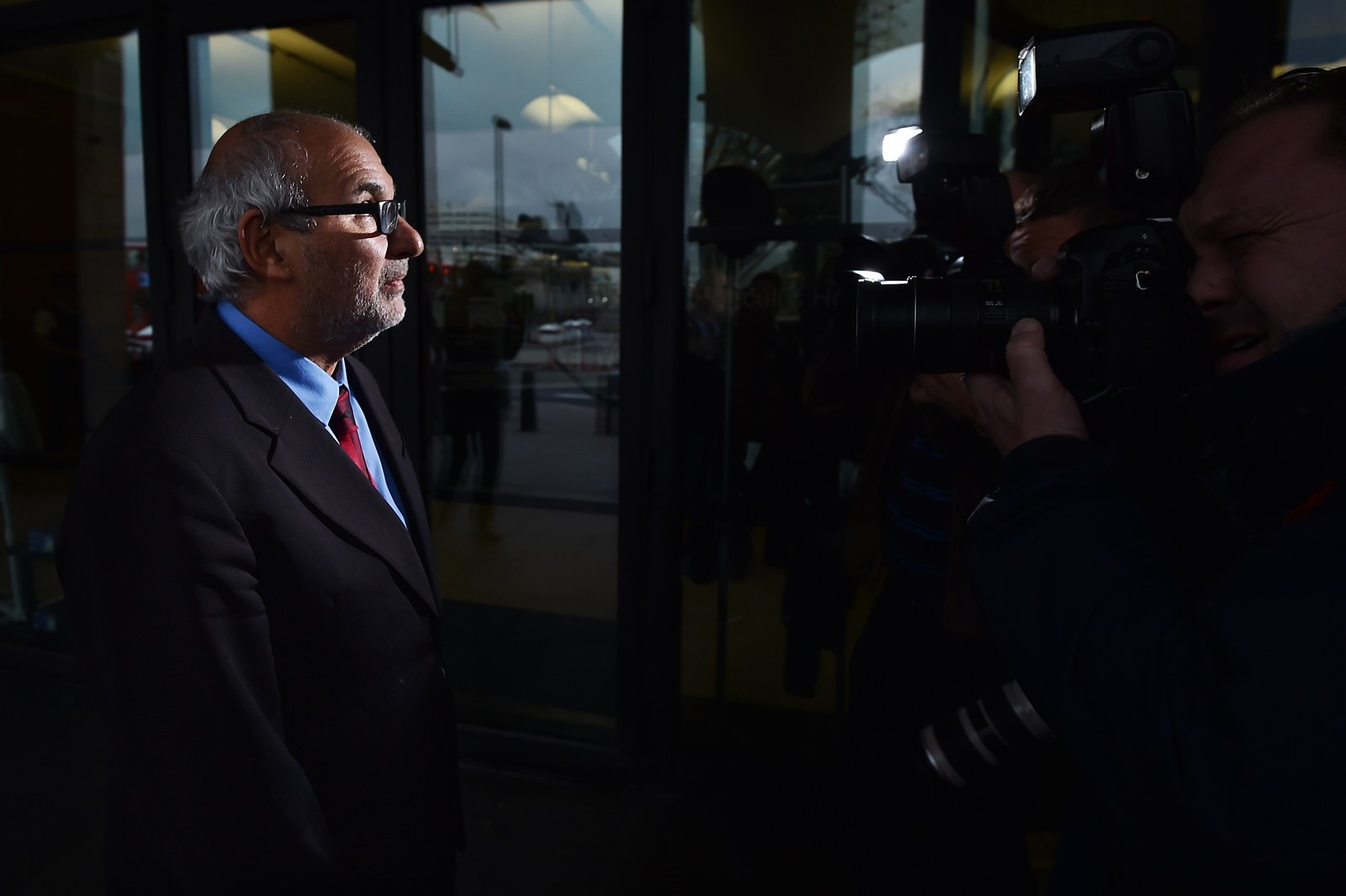
The report highlighted the oddity of a charity that only worked with young people in two London boroughs and Bristol receiving millions of pounds in government funding. It found that charities and young people across the country were likely to have "lost out because of the special attention the charity received from successive governments".
The report pointed out that in 2011 the charity received a grant of £9 million over two years from the Department for Education. National charities received far less from the same funding round.
“The faith that things would improve when they didn’t was naïve," Hillier said of the government's decisions. "So many other charities did not get the same support and it is clear that Kids Company received special treatment – to the detriment of other deserving charities around the country.”
The PAC was extremely sceptical about Kids Company's results, despite the largesse the charity had been shown by ministers. It said the government "relied heavily on Kids Company’s own assessments of its performance", adding: "We are very sceptical on the charity’s inflated claims about what it achieved."
Karl Wilding, director of public policy at the National Council for Voluntary Organisations, said: "This report will make extremely frustrating reading for the thousands of charities who have to submit highly detailed plans in order to have a hope of funding and who work very hard to produce honest and accurate assessments of the difference they make.
"Successive governments threw money at Kids Company at the same time as they were making life harder for other charities. Local and national government have been imposing complex contracts on many of the charities they contract with in the name of efficiency, but these are often so unwieldy that they create more problems than they solve."

The report also said the government "ignored Kids Company’s serious cashflow problems and failure to make itself financially sustainable and continued to fund the charity to keep it afloat". It describes the Cabinet Office's decision to pay the charity £4.3 million in April this year as "ill-judged and gullible".
Richard Heaton, former permanent secretary at the Cabinet Office, conceded to the committee that it now "[looked] like a naive thing for me to have done”. The committee's report concurred, "especially when it emerged that the numbers the Cabinet Office had based the £4.3 million grant on were not accurate at the time the grant was made".
Just two months later the charity asked for another £3 million. Heaton was against handing the money over and made this clear by issuing a request for ministerial direction (essentially a warning), but was overruled by his ministers, who took the view, in his words to the committee, that it was "a punt that was worth funding”.
The PAC report chastised "accounting officers across government" for failing to "stand up to ministers". It pointed out it was only in 2015, when Heaton challenged them, that the "question of seeking a ministerial direction had arisen".
The report said also that the claims made by the civil servants that they were "under no pressure from ministers to make direct grants to the charity without a competitive process" were "barely plausible".
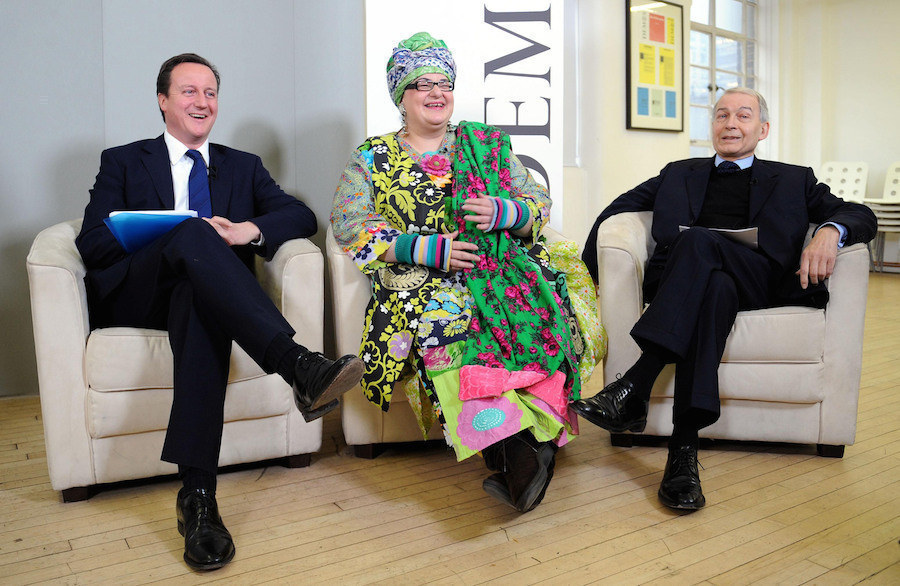
It concluded: "The government failed to learn lessons from Kids Company until the end." It said there was no "knowledge-sharing" about the charity across government, despite the high number of departments that had a relationship with the charity. The PAC made the following recommendations to government:
· The government should conduct a fundamental review of how it makes direct and non-competitive grants to the voluntary sector, and develop a register of such grants
· It should improve the way it monitors and evaluates the performance of grant-funded organisations, and ensure they have robust and transparent mechanisms for measuring their own performance
· It should not provide or appear to provide funding commitments without referring the funding request to the appropriate funding department
· If the government decides to use special powers to grant funding, it should provide a transparent case for its decision and report regularly on the use of these powers


